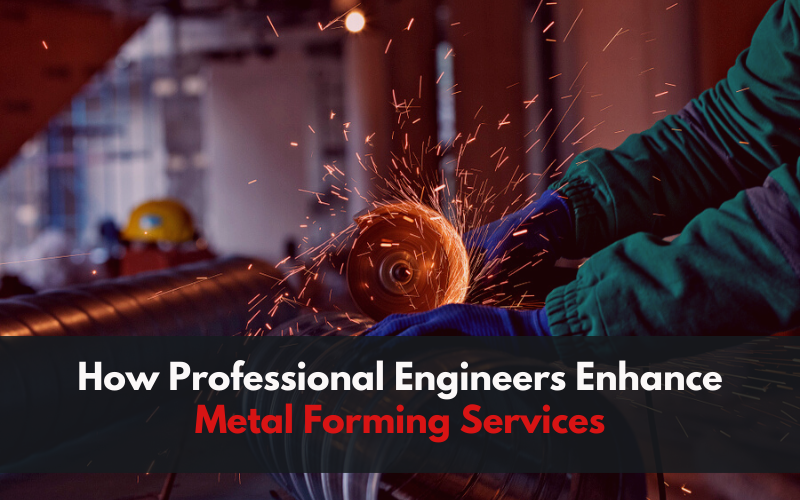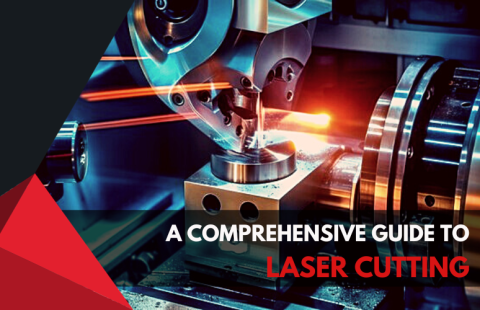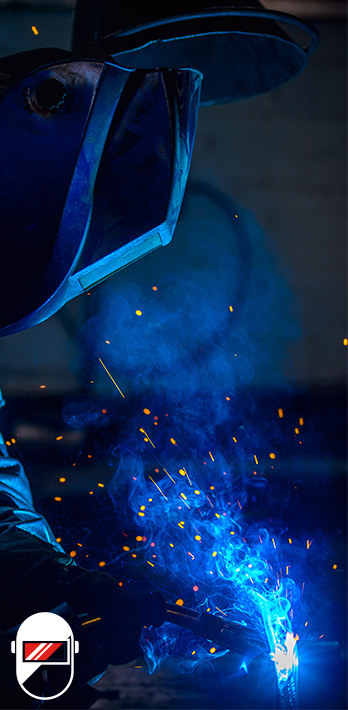
How Professional Engineers Enhance Metal Forming Services
“Engineers bring the art of innovation to metal forming, pushing boundaries, and transforming the ordinary into the extraordinary.”
Metal forming is regarded as a decisive process that shapes the foundation of various industries. From aerospace , automotive to manufacturing it plays a critical role in creating durable and intricate parts.As a film director serves as the captain of the ship similarly in this industry the professional engineers are the unsung heroes who serve behind the scene.They enhance and transform these services ensuring innovation, precision and efficiency.
Let’s explore how professional engineers contribute to the advancement of metal forming services and the benefits they bring to the industry.
- Design Optimization – Professional engineers play a pivotal role in optimizing the design of metal components before the forming process begins. They possess a deep understanding of materials, mechanical properties, and the behavior of metals under different conditions and analyze design prerequisites, making informed choices on material, thickness, and other factors. This optimization guarantees the end product aligns with specifications, minimizing waste and costs.Their ability to anticipate challenges and identify potential issues in the design phase helps streamline the entire process, resulting in improved efficiency and reduced production time.
- Process Selection and Customization – This process incorporates various techniques such as bending, stamping, rolling and extrusion.The engineers possess a vivid knowledge of all these processes allowing them to choose the most suitable method for a specific application.Different factors such as material properties, desired shape complexity, production volume, and cost-effectiveness are taken care of. Moreover, they can also customize and adapt existing processes to meet the actual needs. By tailoring the processes, they can improve efficiency, reduce material waste, and enhance the overall quality of the products. Their expertise ensures that these services go well with the specific needs of the industry, resulting in highly efficient and reliable manufacturing operations.
- Tooling and Equipment Design – Effective tooling and equipment are crafted through close cooperation between professional engineers and designers. They work precisely to develop and fine tune the tools, considering major factors like material compatibility, geometry, and wear resistance. Utilizing advanced simulations like finite element analysis, they predict and address potential design issues proactively, reducing downtime, cutting tooling costs, and boosting overall productivity. This expertise contributes significantly to enhanced precision, consistency, and reliability in these processes.
- Quality Control and Inspection – They are well-versed in quality control and inspection methods, ensuring that the resultant components meet the required specifications. They develop and implement strict quality control processes, including dimensional checks, surface inspections, and material testing. They employ advanced measurement techniques, such as coordinate measuring machines (CMMs) and non-destructive testing (NDT) methods, to verify the integrity and accuracy of the parts. By implementing strong quality control practices, they contribute to the production of high-quality components, minimizing rework and rejection rates. This focus on quality enhances customer satisfaction, builds trust and long lasting relationship with the clients and hence builds up the reputation of metal forming services.
- Advanced Manufacturing Technologies – The advent of automation, robotics, and artificial intelligence (AI) has modernized the execution of metal forming processes. With their expertise, engineers are instrumental in designing and implementing these technologies, resulting in streamlined production, cost reduction, and improved overall efficiency.Robotic systems in recent times have the capability to perform repetitive tasks with unmatched precision and speed. This not only enhances the consistency of the parts manufactured but also reduces the risk of human error. They also explore the potential of real-time monitoring and control systems, enabling immediate adjustments to the process based on feedback from sensors and data analytics.
- Sustainability and Environmental Impact – Amidst the growing emphasis on environmental sustainability, engineers are actively engaged in optimizing metal forming services to reduce their environmental impact.This involves developing processes that reduce energy consumption, exploring eco-friendly materials, and implementing recycling initiatives.By adopting green practices and optimizing resource utilization,they ensure that these services align with global sustainability goals while maintaining or even improving efficiency.
Thus these specialist engineers bring invaluable expertise and knowledge to these services. Their involvement in design optimization, process selection and customization, tooling and equipment design, and quality control significantly increases the efficiency and effectiveness of metal forming operations.
Seeking Expert Advice to Improve Metal Forming Services?
Contact Mobifab Today !!
Their extensive experience and expertise ensure that your project is handled by skilled professionals engineers who can provide valuable inputs and guidance throughout the process. With their modern equipment and advanced technology, Mobifab delivers accurate and efficient fabrication.
Metal Forming Perfected: Mobifab Engineers Leading the Way !


